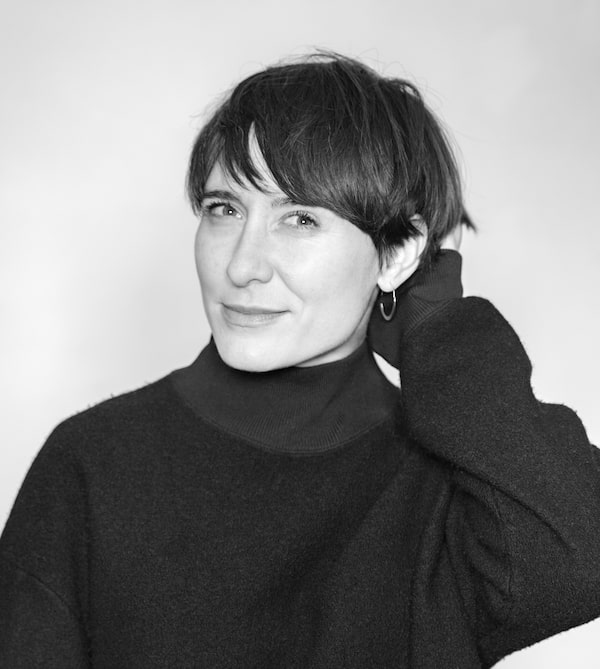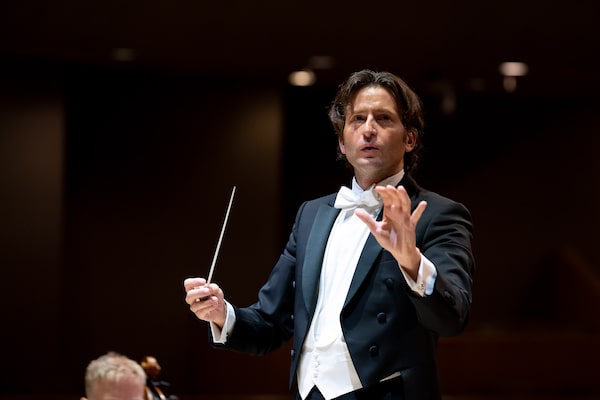Mozart, Beethoven, Tchaikovsky, Brahms, Chopin. When you think of the musical canon, these are names that usually come to mind. The works created by these composers form an educational base that tends to inform listening habits and programming choices and influence how classical music is perceived, received, performed and presented.
But over the past decade, there’s been a feeling in the industry that this base is overdominated by dead European men and largely divorced from the historical, racial and social contexts that fuelled a far broader breadth of repertoire. Such review means the music of Florence Price and Lili Boulanger can now heard beside that of Beethoven and Brahms.
The Globe asked five individuals working in various classical capacities for their thoughts; responses, which have been edited for length and clarity, share an awareness of the need for change.
Kate Molleson

David Grinly
BBC Radio 3 Broadcaster, writer, critic, author of Sound Within Sound: A Radical History of Composers in the 20th Century (McClelland and Stewart, 2022):
I think the way to redress the problem of canon is not to simply try to replace one composer with another but to question whether we need the notion of centrality and margins at all. The main problem is that there are self-anointed, or more broadly, collectively-anointed gatekeepers, who maintain the canon, to which so much is attached in terms of livelihood, status, access to infrastructure, issues around making the music, access to recording facilities, publishing – the royalties that come in if certain houses’ composers’ works are performed, if the works are kept in copyright, if recordings are played on the radio. In the book, I don’t want it to seem like I’m “discovering” these “forgotten” composers – José Maceda is a well-known figure in the Philippines, for instance. His funeral in 2004 was something close to a state event, but we don’t know his work because so many don’t care about other parts of the world. We should be careful about canon as related to language, and using words like “forgotten” or “lost” or “unknown” – they’re a comment on our lack of inquisitiveness, not on the artists themselves.
Hannah Chan-Hartley
Public musicologist, writer, editor; creator of visual listening guide symphonygraphique.com:
A canon is flexible and fluid, not monolithic and fixed – that is because of the changeable nature of musical choices, and the people making them. Every musical tradition in the world has some concept of canon. Even within one tradition, there are multiple canons. The various “canons” of Western classical music are shaped by complex ecosystems of people and institutions who act as arbiters of taste – performing artists, critics, scholars, teachers, radio-show presenters, arts organizations, music publishers, recording companies, universities and conservatories. Everyone in this “industry” makes choices that ultimately shape what gets made known to their local and global audiences. In turn, audiences signal their choices of who and what they want to listen to through their attendance. We must think critically about how these networks work and uncover problematic power dynamics that result in discrimination and erasure as well as barriers to access. To move forward, I think it’s important to understand what guides our judgments, to see them as choices, be open to modifying them and provide context for what we’re listening to and why. We should think inclusively and expansively, not get stuck in the idea of “canon” itself.
Gustavo Gimeno

Stuart Lowe
Music director, Toronto Symphony Orchestra and Orchestre Philharmonique du Luxembourg:
What is canon? I can’t help but think of a recent TSO concert in relation to this question, one with works by Unsuk Chin, Wagner, Haydn, Ligeti, Beethoven and a world premiere by Canadian composer Christina Volpini. I don’t think the idea of canon exists in the way we thought of it, and the way it was presented, in the past – there used to be orchestras doing a specific set of known concertos and pieces, but now there are so many layers. Recently I worked with composer Janet Sit, whose work we are performing on a program that also features another new work by living composer Magnus Lindberg, and Bruckner’s 4th. I think the notion of canon changes from place to place, and institution to institution, and the speed at which things change is also different. There’s a different speed to adjusting the notions of canon in Europe than in Canada, and then again between Luxembourg and Toronto. That speed will demand different things – from the audience, yes, but also the citizens of each place, and from what surrounds people in those places. I think we should approach the idea of canon with relation to a particular place and context.
Marion Newman
Mezzo-soprano, host of CBC Radio’s Saturday Afternoon at the Opera:
It needs to be something that represents the art form but also represents the people who are performing, who are being performed to and the history we all share: this is what I see as canon. It’s important to rethink who we consider experts. We are constantly growing and changing and looking at our history in broader ways. Why are some things called “opera” and some things not? I come from Potlatch people – we feast, we use masks, we tell stories through song and dance; it is very operatic. It is theatre told through song. And it was illegal to practise that for nearly 60 years in Canada, though much longer in the real scope of things. Through my lifetime that practice has been coming back gradually; people are relearning their songs and customs. They’re all drops of water that eventually end up in the same stream and ocean; do we want to look at one drop of water at a time or look at it as a whole?
Mervon Mehta
Executive director, performing arts, Royal Conservatory of Music
Who’s the arbiter of what’s in the canon and what’s not – is it the classical-music police? We don’t have to get rid of Bach, Beethoven or Mozart; surely we can have them and have Dinuk Wijeratne, Florence Price and Ravi Shankar. I would put Oscar Peterson in the classical canon. Why shouldn’t he be? He wrote seminal music and played seminal music, as did Cole Porter, Chick Corea, Miles Davis. Everyone wants to put things in boxes – I say, get rid of the boxes. I had an argument with people about the Florence Price album done by Yannick Nezet-Seguin; they scoffed and said, “It was just about Black Lives Matter, no one cared about her for 75 years” – I said, nobody cared because she didn’t get a chance to be heard! If you add more voices it doesn’t mean you have to take away the others; it’s a spectrum. Why not study Julius Eastman and also study how he was influenced by 12-tone composers? I have nothing against an all-Schubert recital, or Andras Schiff coming to play the Goldberg Variations, but we also have to hear other voices – so why can’t we have both? Why does it have to be one or the other?